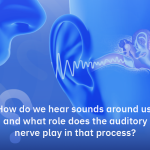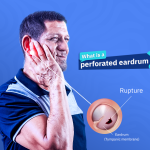Meniere’s Disease
Did this sensation come with a ringing in your ear? If so, you might be suffering from Meniere’s Disease. But what is this condition? What causes it? And how can it be treated?
In this article, we’ll answer all your questions and provide you with everything you need to know about Meniere’s Disease.
- What is Meniere’s Disease
- Symptoms of Meniere’s Disease
- Causes of Meniere’s Disease
- Risk Factors
- When to See a Doctor
- Diagnosis
- Treatment Options for Meniere’s Disease
- Tips for Living with Meniere’s Disease
What is Meniere’s Disease?
Meniere’s Disease is a chronic condition caused by disturbances in the inner ear that affect its ability to manage hearing and balance. Experts believe the root cause is a buildup of fluid, particularly endolymph, in the inner ear that doesn’t drain properly. This results in partial hearing loss that can progress to complete deafness, and sudden vertigo that affects physical balance. The inner ear is responsible for both hearing and body equilibrium.
Symptoms of Meniere’s Disease:
The disease commonly affects only one ear, but in rare cases, both ears may be involved, leading to long-term hearing loss. Common symptoms include:
Sudden vertigo without warning, lasting from 20 minutes to several hours. It may also be accompanied by nausea and vomiting
Hearing loss in the affected ear, which may be intermittent or progressive
Tinnitus, a ringing or buzzing noise perceived in the affected ear
- Aural fullness, or a feeling of pressure and blockage in the ear
Causes of Meniere’s Disease:
Doctors suggest that several factors may contribute to the development of Meniere’s Disease, including:
Pressure on the auditory nerve due to fluid buildup in the inner ear, affecting signal transmission from the ear to the brain
Irregular blood flow in the vessels of the inner ear, impairing sensory cells and auditory hair function
Genetics, particularly in individuals with a family history of the disease
Viral respiratory infections
- Immune system disorders, which weaken the body’s defense against infections
Risk Factors:
Certain factors may increase the likelihood of developing Meniere’s Disease, such as:
Heavy alcohol consumption
Smoking
Family history of the disease
Prolonged exposure to stress
Chronic respiratory infections affecting the auditory nerve
Allergies leading to upper respiratory complications
When to See a Doctor:
If symptoms such as those listed persist or recur for hours at a time, visit an ENT (ear, nose, and throat) specialist for an evaluation and hearing tests.
Diagnosis:
Because symptoms may resemble other conditions, accurate diagnosis involves several steps:
Reviewing medical history and current medications that may cause dizziness
Identifying recurrent, prolonged episodes of vertigo
Conducting a hearing test to assess perception of various sound frequencies
Eye movement testing to track response and positioning during head movements
Caloric testing, using warm and cold air or water to stimulate the inner ear and observe eye movements
Rotational chair testing, where the patient is seated in a computer-controlled chair that rotates to activate the inner ear and track eye movement
MRI scanning to rule out conditions like aneurysms, multiple sclerosis, or tumors
Vestibular Evoked Myogenic Potential (VEMP) to evaluate inner ear response to sound through muscle activity
Computerized Dynamic Posturography (CDP) to assess balance and determine which sensory system is affected—vision, inner ear function, or proprioception
Video Head Impulse Test (vHIT) to track eye reflexes during quick, unexpected head movements
- Electrocochleography (ECoG) to evaluate inner ear fluid levels and help distinguish Meniere’s Disease from other conditions
Treatment Options for Meniere’s Disease:
As a chronic condition, there is no complete cure for Meniere’s Disease, and hearing loss may be permanent. However, medications can reduce vertigo symptoms and improve quality of life. Treatments may include:
Anti-vertigo medications to control nausea and vomiting
Diuretics and betahistine to reduce inner ear fluid buildup and improve blood flow
Middle ear injections (antibiotics or steroids) to alleviate vertigo and potentially preserve hearing
If medications fail due to severe vertigo, surgical options may be considered:
Surgical Treatments for Meniere’s Disease:
Endolymphatic Sac Surgery: Relieves pressure and regulates fluid levels by inserting a drainage tube
- Vestibular Nerve Section: Severing the nerve responsible for sending motion signals to the brain to reduce vertigo while preserving hearing
Tips for Living with Meniere’s Disease:
Since Meniere’s Disease is chronic, here are helpful tips for managing symptoms:
Reduce salt intake:
Excess salt increases body water retention. Experts recommend less than 2,300 mg of sodium daily, spread throughout the day
Avoid caffeine, alcohol, and tobacco:
These can trigger vertigo in some people
Follow a healthy lifestyle: Get enough sleep, maintain a nutritious diet, and engage in regular exercise to support the immune system ,Early diagnosis and proactive management are key to minimizing the impact of Meniere’s Disease.






